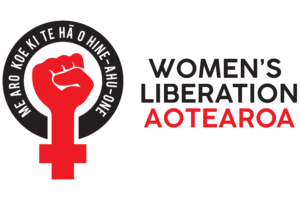Rocks and hard places: the punitive sanctioning of mothers
By: Karolyn
09 August 2021
Almost four decades of neoliberalism has hit New Zealand beneficiaries hard, especially large numbers of solo mothers on benefits. They have become the most demonised of beneficiaries, as seen in the impact of sanctioning parents (96% of whom are women) for failing to name the other parent of their child.
This is a graphic case of women being caught between abusive and negligent men in their personal lives, and a harmfully paternalistic state.
The increase in women’s rights, protections, and services over the last couple of centuries, has happened when the governing political party/ies have listened to women. Laws have then been enacted to counter the worst abuses by misogynists and abusive or violent males. But when political expediency, neoliberalism and patriarchal economics dominate, politicians can turn on some of the least powerful women, and leave them to choose between two terrains of abuse.
Under the Helen Clark Labour government, Labour tried to be kinder than National to those on low incomes. Yet they still competed to show they would be tough on beneficiaries, embracing various income-deducting sanctions. Meanwhile the mainstream media too often promoted the narrative of ‘bludging beneficiaries’, with a strong focus on mothers allegedly gaming the system to get easy money from the state. The truth was more often the opposite with women, especially those left holding the babies. On the other hand, many male impregnators, possibly also struggling financially, try to salvage what they can for themselves by opting to ditch mothers and children.
Metiria Turei campaigned for years against the impact of parental poverty on children, but never had the impact of the Green Party’s male co-leader. In a last-ditch effort, she tried to expose the choices mothers on benefits had since the neoliberal reforms of the 1980s: a choice between not being able to feed or adequately care for their children, or to try to cheat the system. For all its rhetoric about being opposed to poverty, her own party failed to have her back, with a public show of solidarity and strategic nouse. The new Labour Leader Jacinda Ardern moved quickly to distance herself from Turei’s stand, while also proclaiming she was for ending child poverty. Turei was left swinging in the wind, her parliamentary career over.
At the beginning of its first term the Ardern Labour government stepped up and said it would end the punitive sanctions on sole parents who failed to identify the other parent. Carmel Sepuloni stated that the reason for ending the sanctions was because there was no evidence these sanctions worked. She also stated that family violence was the most common factor in failures to name a parent. In contrast, the then leader of the National Party, Bill English, stated that a consequence of scrapping the sanction would result in more pressure on women to not name the father of their child.
On 7 July 2021 RNZ reported on the progress of Sepuloni’s stated intention. The deduction of approximately $28.00 per week had not ended until April 2020. The government had characterised the deductions as “unfair”, “harmful”, and a “discriminatory sanction that penalised children”. Over 50% of the sanctioned women were Māori or Pasifika.
The Ministry of Social Development (MSD) is now working to reimburse the women who were wrongly sanctioned in terms of the law at the time. How did WINZ/MSD so completely fail in their mission as to incorrectly sanction so many women? For instance, a fear of violence was a reason for an exemption that meant a parent should not be sanctioned. Why were both National and Labour-led governments unaware of this, or unwilling to deal with it?
Instead of treating this with urgency, RNZ’s 7 July 2021 article stated that MSD “has been slow to review the cases”. RNZ’s Checkpoint has also provided details of some of the impacts on individual women and children. For instance, one woman “…was 16 when she became pregnant. She did not tell MSD the name of the father of her child because she feared for her safety”. She was afraid of the man and his then partner, who had a history of threatening violence.
The amount of money deducted over many years from some parents’ benefits has amounted to tens of thousands of dollars. MSD reimbursed one mother with $30k because it was proven that “MSD failed to properly explain the sanction and the woman’s rights in a way she understood.”
The numbers of women and children negatively impacted have been large, but not all of them will be reimbursed. By July 2021, 8595 cases had been resolved in a “proactive review” ordered by Sepuloni. Of these, 2400 have been repaid sanction arrears.
In the longer term, how can it be ensured that women who are the victims and survivors of male abuse, violence, and misogyny are not doubly traumatised by an uncaring state? How can future governments be prevented from aligning with punitive capitalist and/or misogynistic values? If the state cannot be guaranteed to protect women from the oppression, abuse, discrimination and harmful inequalities we experience in our personal lives, who can?
Share this entry
Trackbacks & Pingbacks
-
[…] It is significant that, according to overseas reports, working mothers have been particularly hard hit by Covid-related job losses. For instance solo mothers on benefits have been severely harmed and demonised by the punitive approaches of New Zealand’s neoliberal state (see my earlier post, “Rocks and hard places: the punitive sanctioning of mothers”.) […]


Neoliberal politics has ripped the heart out of NZ politics. MSD can remedy the situation of 6000 still to be recompensed. Their willingness to not do so speaks volumes. Until neoliberal politics are kicked to the kerb, things wont get better for the less fortunate members of our society.